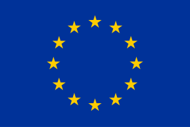Interested in organic aquaculture? Read FutureEUAqua’s report on consumer awareness, perception and acceptance of European aquaculture and production methods
FutureEUAqua has released a report on consumer awareness, perception and acceptance of four European aquaculture production systems: organic, conventional, recirculating aquaculture system (RAS) and integrated multitrophic aquaculture (IMTA).
The main objective of the report was to assess consumer awareness and perception of feed, products, and aquaculture production methods. A representative sample of 2,500 consumers from the United Kingdom, France, Germany, Spain, and Italy was taken to fulfil this goal.
The report highlights that awareness about aquaculture is generally low on a global scale. However, consumers tend to be more aware of organic and conventional aquaculture than RAS and IMTA. Participants of the survey also scored positively concerning the perception of the more familiar organic and conventional production systems. Overall, ratings of organic and conventional aquaculture were higher for people in the upper age group. Organic aquaculture scored best for highly educated females. On top of that, organic production was perceived to have most benefits, such as job creation, improved fish and human health, reliable and affordable food source, and higher nutrition scores. Consumer acceptance was higher for organic aquaculture compared to the other three production systems.
To learn more, visit FutureEUAqua’s website, follow the latest project’s developments on Twitter, LinkedIn and Instagram using #futureeuaqua and subscribe to the bi-annual newsletter.FutureEUAqua promotes sustainable growth of environmentally friendly organic and conventional aquaculture of both, major fish species and low trophic level organisms resilient to climate change. IFOAM Organics Europe contributes to the project’s work on training, capacity building, communication, and dissemination.


